Super reversal, the mother of God was beaten in the face
The train game can put anyone who tries to use general moral standards to judge right from wrong in a dilemma. You choose to sacrifice one person to save five, then the issue of the human rights of the weak will be worth considering, and conversely, then the interests of the majority will be violated.
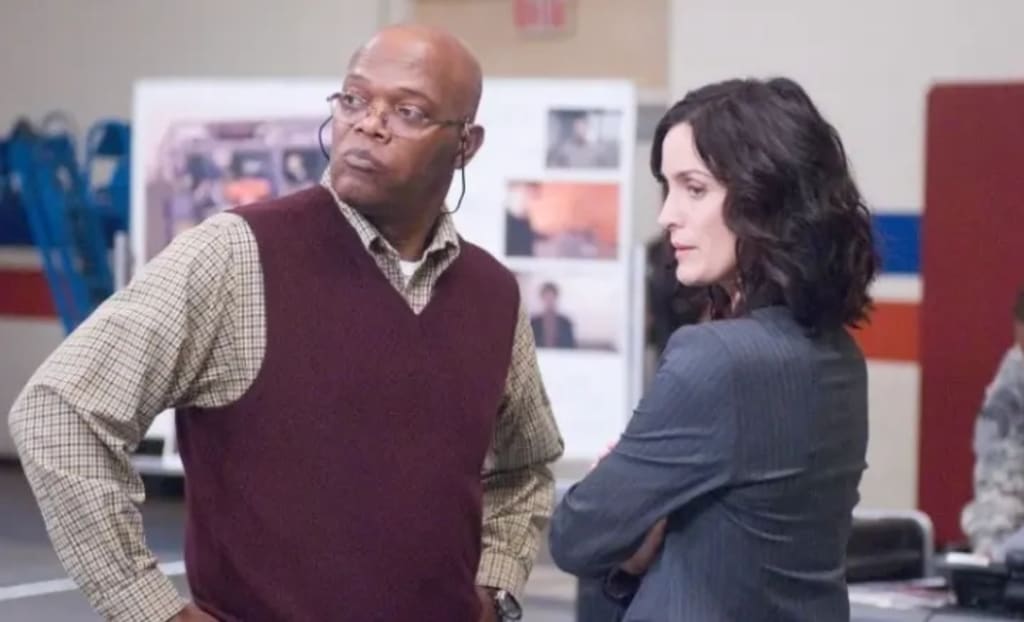
Small sacrifices can instantly evolve into big problems. The key to this problem is that no matter what kind of choice you make, the result will trigger a new round of problems. People have been struggling with the train problem for many years to bring their conscience to torture, but never found the essence of the train problem.
The movie recommended to you today seems to find the essence of the train problem, but it is still plausible. Strategic Task Force" is about a bomb expert who served in the U.S. Special Forces and made three nuclear bombs in three U.S. cities to resist the tyranny imposed by the U.S. on Muslims in the Middle East for decades. This terrorist attack eventually puts the strategic security services of the U.S. on edge, and a female FBI counterterrorism agent is assigned to investigate the case, which is taken over by the military at a critical time. After a negotiator nicknamed H intervenes in the case, the female agent's three views are shattered. Because the expert's negotiation skills for the female agent stare in disbelief.
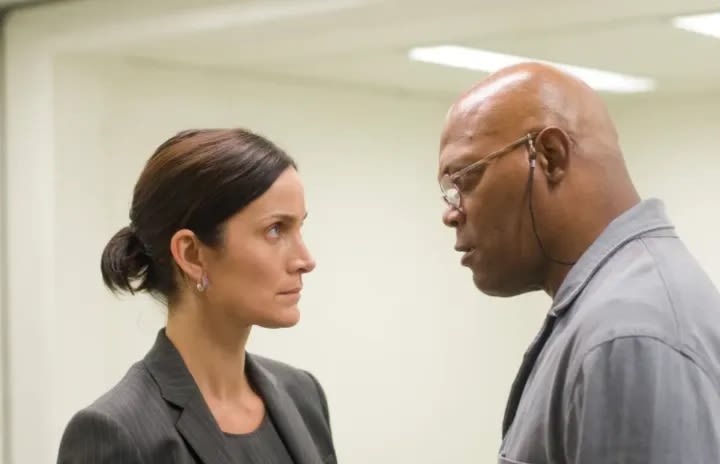
H was not willing to have any emotional scruples for the criminal like the female agent, so H started to torture the suspect inhumanely, cracking fingers, clicking, cutting flesh, and other kinds of torture that made the female agent feel like she was in purgatory. The female agent's conscience is tortured and she exclaims that the suspect has human rights and cannot be treated like this, H is determined to sacrifice such a criminal to save the three cities from nuclear attack.

In the trial of morality and conscience, the female agent could not hold on, while H appeared to be very indifferent, she did not care too much about the situation, because H knew that a criminal was not worth the sacrifice of a city's population. In the end, however, H loses out to the human rights logic of the female agent. The criminal does not feel any emotional gratitude for the mercy shown to him by the female agent, and he eventually ends up dead. The appointed time comes and the police find three bombs, but the hidden fourth one is detonated.
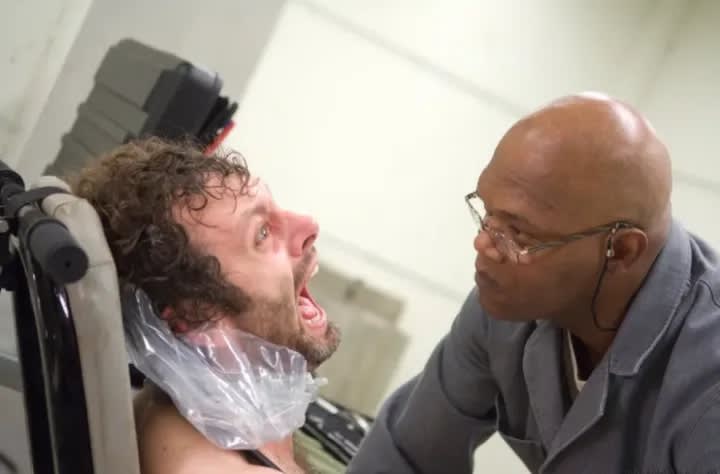
Strategic Task Force" is a very interesting movie, on the surface, it is a choice movie, save one person and save a group of people, which one is more important? This question has long plagued all people, some choose the majority, they believe that the majority is the truth, and sacrificing a small number of people to achieve the majority is very worthwhile, so people who believe this is seen by the American public as communism, even though such a concept is not much related to communism. At best, it is collectivism, which is essential to human development.

Some believe that the minority should not be sacrificed to achieve the majority, and such people are considered liberal, a value that is common in Western countries such as the United States, and the sentiments of the female agent in the film. Liberalism is characterized by the individual, but also the raw power of resistance to the collective. Liberalism aspires to an environment where there is no restraint, and even criminals should have the power they deserve. This is fine, but the ultimate culmination is a bottomless abyss.
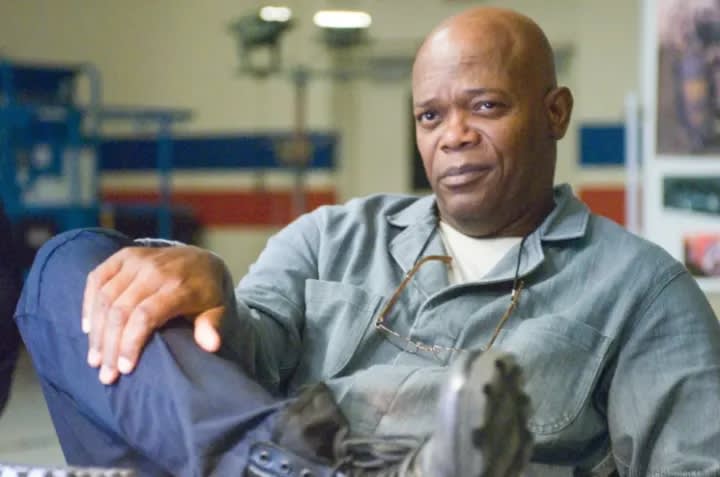
The point of liberalism is that everyone has human rights, but when he chooses to be compassionate to the few, does he not also violate the human rights of the many? This is something that liberalism does not think about, and it is also a human right that should never be limited by numbers. When liberals respect the human rights of the minority, are the majority not human?

Thus, there is not a completely viable answer to the train problem, and while we focus our discussion on whether it is a minority or a majority, we forget that the root of the problem is a paradox. The answer to the question does not lie in the minority or the majority, but in who the questioner is, and when you are wrong no matter which answers you choose, isn't the question itself a problem? Why don't we question the question? This is another central point hidden in this film.
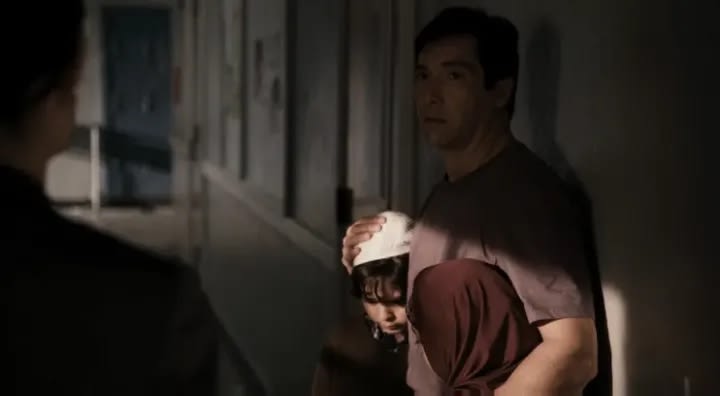
The same question itself should have different answers, and no one can specify which answer is right, and which answer is wrong, when someone insists on specifying an answer is right, then the person who asked the question is not a problem, it should not be questioned. When you choose to be a sanctimonious bitch, you have to suffer the condemnation and blow of the majority, and when you choose to save the majority, you will also be attacked by the so-called human rights. What lurks behind these answers is a certain choice and the reality of what one should endure after making that choice, yet in reality, many of us tend to overlook the fact that this is an all-encompassing issue and not just a matter of choice.
We focus too much on the answer to the question, but ignore the fact that the question is posed by an unintentional person, just as the film presents, we focus too much on the trial of terrorists, but ignore the real terrorists behind the terrorists, and even call it absolute justice, which is also a kind of irony. It is time for the U.S. to think about its foreign policy and how it can prevent itself from falling deeper into terrorist attacks. Why go about overthrowing the regimes of other countries and interfering in their internal affairs? Blame it on yourself If there is a real-life case, it must be the United States. When you stand on the moral high ground, then who else can judge you?






Comments
There are no comments for this story
Be the first to respond and start the conversation.